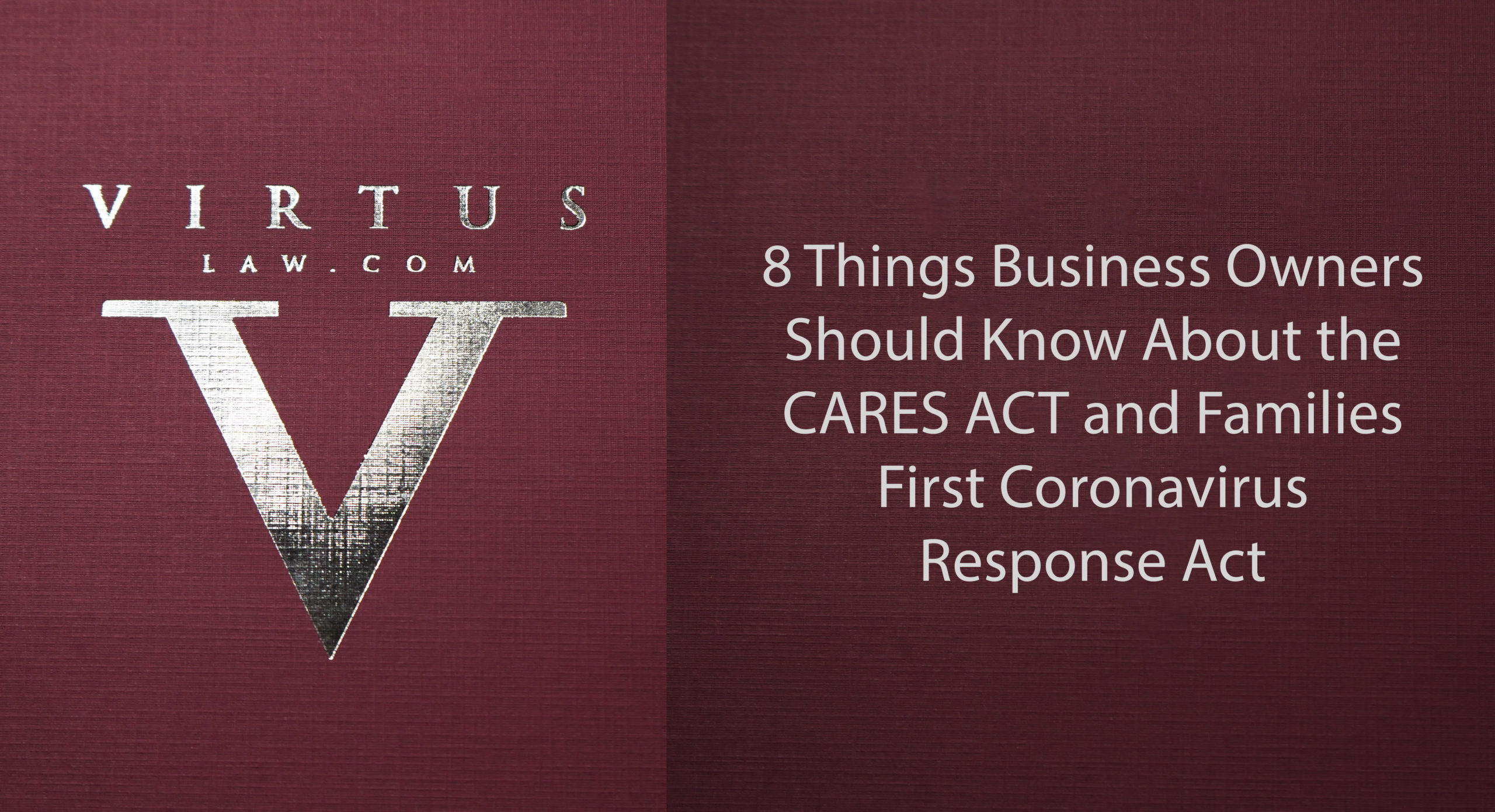The CARES Act and Families First Coronavirus Response Act included many programs, including some that impact small business owners (less than 500 employees). Here are some of the highlights (including a few programs small business owners may be eligible for):
- Stimulus Check: If you qualify, you can take advantage of the stimulus package through the stimulus check. This amount is $1,200 for single individuals and $2,400+$500 per child for married couples filing jointly. If your income is above $75,000 (single) or $150,000 (married) the payment begins to phase out. If your income is above $99,000 (single) or $198,000 (married), you will not receive a stimulus check in most cases. Children over 16, children in college, and non-U.S. citizens have special rules and may, in many cases, not be eligible for this payment.
- Economic Injury Disaster Loans: These are loans available directly through the SBA that can offer up to $2,000,000 in funds to keep your business afloat. As part of the loan application process, you can receive an advance (up to $10,000, but this is capped at $1,000 per employee of your business currently). The advance does not have to be repaid and you are able to keep the advance even if you ultimately do not qualify (or do not accept) an Economic Injury Disaster Loan.
- Paycheck Protection Program (PPP): This is a loan that helps cover payroll costs. This option is only available to businesses with less than 500 employees. The loan may be for up to $10 million but is based on payroll and certain benefits costs. If the loan money is used for payroll and other obligations within the first eight weeks after the loan funds, the debt will generally be forgiven, but if the number of employees is reduced or payroll costs reduced 25 percent or more, then the amount of the loan eligible for forgiveness will be reduced.
- Current SBA Loan: If a business already has an SBA loan, it may qualify for loan forbearance and the government will cover payments, including principal and interest for the next six months. At the end of six months, the loan balance will be reduced and the business’s credit will not be affected. Business owners with SBA loans must contact their lender to request this benefit.
- Retirement: The CARES Act increases the amount an individual can take out as a loan from a 401(k) and there are no taxes or penalties owned when an individual takes the loan as long as it is paid back within five years in substantially level payments at least quarterly.
- Unemployment Benefits: Unemployment benefits have been expanded by an additional 13 weeks, for a total of 39 weeks. The federal government is also giving out $600 a week in addition to the state unemployment benefit, only if you are approved for state unemployment. Self-employed workers (including certain s-corporation and pass through company owners) are now potentially eligible to receive unemployment benefits as well (if the business has been shut down due to COVID-19. Business owners should also keep in mind that in most states furloughed employees (employees temporarily terminated from employment that will likely return to service within 60-120 days) are eligible for unemployment benefits.
- Sick Leave and Family Medical Leave due to COVID-19: The Families First Coronavirus Response Act requires certain employers to provide Emergency Paid Sick Leave (EPSL) and Emergency Family Medical Leave (EFMLA) to eligible full time and part time employees. Under EPSL, qualifying employees can receive paid leave for a maximum of 80 hours (2 weeks) at 100% of salary or 2/3rds salary depending on the reason for the EPSL. Emergency Family Medical Leave Act (EFMLA) provides qualified employees up to 12 weeks of paid leave (at 2/3rds salary) to care for a child (whose daycare, school, etc… is closed due to COVID-19.
Virtus Law, PLLC continues to monitor developments in this (and other COVID-19 areas) and will continue to post relevant updates to this website.

